Get your QUDO SDK!
Get your QUDO SDK!
 MAINNET LAUNCH AIRDROP
MAINNET LAUNCH AIRDROP
 LAUNCH DATE: Q1 2026
LAUNCH DATE: Q1 2026
The Web3 Home for
Indie Games

Game Studios
What QUDO is about
WEB2 TO WEB3 GAMES
QUDO SDK for Unity allows games to be converted to Web3 in less than 30 minutesQUDO TOKEN
Gamers Play & Earn a Cross-Game Token: QUDOQUDO IGAs
Interoperable Gaming Assets that Gamers can Build, Import & Play into the Games they likeCIRCULAR ECONOMY
QUDO Token is built for a Circular Economy in GamingWeb3 QUDO Games
Features
Rewarding Mechanism
Gamers are rewarded for their time playing games and also for their in-game performance. Developers are also rewarded when their games are being played.
Interoperable Gaming Assets
QUDO IGAs are fully decentralized in-game items, powered by NFT Technology. These assets can be offered in-game but also crafted by gamers and artists. QUDO IGAs will be usable across adherent games, having the same look and behaving the same independently of the game.
Cross-game Token
QUDO Token works as a Global Credits System, where the credits you get while playing one game can be used in other games, giving players the freedom to use the token in a variety of ways as opposed to the limitations of traditional in-game credits
Crowd Testing & Engagement Tools for Games
Developers can optimize their early-stage games with the help of the QUDO Community. Gamers are rewarded for spotting bugs in a gamified way, as well as for completing challenges that promote engagement, such as wishlisting, reviewing games, and more.
Unity SDK
With QUDO you can convert your Game to Web3 in less than 30 minutes and benefit from all the advantages of Web3 without any changes to your game. It doesn’t require any blockchain knowledge and lets you just focus on building fun & engaging experiences.
Built-in B2B Marketplace
Indie Game Developers and Studios can get help from professionals in the industry using the QUDO Tokens they get when their games are being played. QUDO B2B Marketplace lists a variety of services from freelancers who accept QUDO in return for their time and knowledge.

Benefits
Be Rewarded for Playing
Gamers are rewarded with QUDO tokens for playing and use them as gaming credits across any game thanks to the cross-game architecture of QUDO.
Frictionless In-App Purchases
Gamers can use QUDO tokens as Gaming Credits to get in-game items and additional content, as an alternative to traditional IAP methods like credit cards. This lowers the barrier to purchase leading to a more vibrant and engaged gaming community.
Bootstrap your Games
QUDO is a platform designed to empower indie game developers by incentivizing gamers to try and promote indie games, help find bugs, wishlist and review QUDO games on available marketplaces, and more. The QUDO Token is an alternative to ads, enabling developers to monetize their games early and use tokens to access support from industry professionals.
Token Based Circular Economy
The QUDO token was designed so that every user has enough reasons to use the token within the ecosystem. For that reason, we’ve created a circular economy of games, gamers, services, teams and backers.
Instant community for your games
Games that join QUDO instantly tap into a vibrant community of over 60.000 players who are eager to try new games. QUDO lists games and promotes playing them from the marketplaces where they are available.
Help shape the future of QUDO
QUDO token holders will participate in the decision-making and governance of the project and ecosystem
No Blockchain Knowledge Needed
QUDO works as a middle-layer infrastructure between games and the underlying blockchain network so that Developers and Gamers get the benefits of Web3 without even noticing they are running on Web3.
True ownership and freedom for gamers
QUDO offers true ownership to Gamers who own assets. QUDO IGAs live outside the games where they’re played and can even be crafted by the Gamer and then imported into Games, enabling unparalleled freedom in gaming.
Join QUDO's KOL Program
Pre-launch benefits for a select few Web3 & Gaming KOLs. Limited spots. Get in touch with us before they're gone.
Game Testimonials

Growth+1233%
Games2

Growth+1566%
Games2
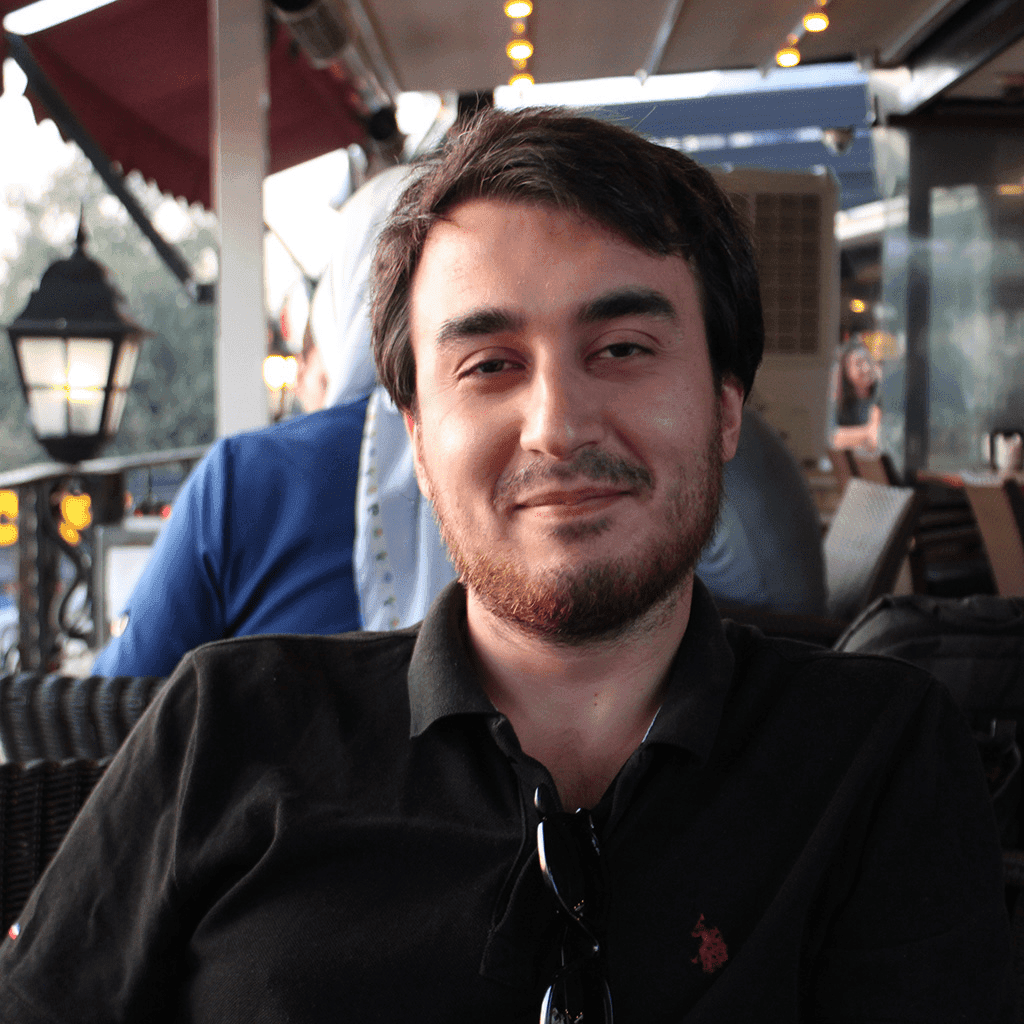
Growth+400%
Games2

Growth+4900%
Games8

Growth+233%
Games1
- Why QUDO?
- Using QUDO
- Integration into games
- Others
Get your QUDO SDK!
QUDO is a gaming network and a token for the gaming industry. It comes with multiple features, but we highlight QUDO’s rewarding mechanism for games, where gameplay time, performance and finding bugs are rewarded with a token - QUDO. By doing so, players get increasingly motivated and are encouraged to spend their tokens across all the adherent games, which is a great advantage for the games themselves when compared to being available on traditional marketplaces. Game developers are also rewarded whenever their game is being played. As they accumulate QUDO tokens, they will be able to get help from affiliated services, like game asset providers, media content & coverage, 2D/3D assets, game development & art freelancing, among others. Everybody wins.
Get your QUDO SDK!
People play games because it’s fun. We don’t want to take that away. We just want to be considered as an extra incentive, “the cherry on top of the cake” for gamers. So, while playing, you will be rewarded in the form of tokens - QUDO - for the time you spend playing. The more you play, the more you are rewarded, always, as it is a core feature from the QUDO rewarding mechanism. Additionally, it is up to each game developer to offer QUDO tokens as rewards for their player’s performance (achievement rewards & highscore rewards) and bugs spotting (tester rewards). QUDO tokens can be saved in your own wallets, sent across the network to other users and easily used to unlock in-game assets and features without the need for traditional money or credit cards.
Get your QUDO SDK!
Most indie game developers and small studios are driven by the passion of creating games. It is thrilling to see their game being played and appreciated by others. However, most of these games have only a few active players and hardly show up in marketplaces as valid options for players. With QUDO, it is also our mission to help game developers fairly, so that indie game developers and small studios get a better chance to showcase their game while being rewarded for it with QUDO coins. Upon integration of QUDO into a game - which can be done in a matter of minutes - both game developers and their players get QUDO tokens. By accumulating QUDO tokens, game developers can get help from affiliated services like game asset providers, media content & coverage, 2D/3D assets, game development & art freelancing, etc., but can also set up QUDO to offer a specific amount to the players in the form of performance rewards or as a prize for new bugs found by players (tester rewards). We are devoted to help you while learning about your needs as a developer, so feel free to get in touch to ask for help and give suggestions.
Get your QUDO SDK!
Just like game developers and players, service providers are another essential element of the gaming industry. Game asset providers, 2D/3D/sound artists, copywriters, software developers, among others, often set the difference between a good game and a great game. With QUDO, we want you to share the same ecosystem as game developers and offer your services inside the platform. This way, game developers will have the means to get your services with tokens - QUDO, something that outside the QUDO ecosystem they would most likely not even consider. We are committed to help you connect with game developers and promote your services.
Get your QUDO SDK!
Until QUDO launches on the TELOS Main Net (see roadmap), we are welcoming game developers, service providers and other key partners as QUDO partners, which will have special benefits. QUDO partners are important for us because they will help make sure that QUDO is a success. Either by providing valuable advisory and testing features and bringing a valuable game or service from the very beginning (i.e. believing in the project before it is an actual success) or by providing support to the QUDO team in various topics, these partners will prove themselves very valuable to QUDO and for that reason we will be very happy to include them in the list of QUDO partners. A QUDO partner will be categorized into one among multiple levels (categories). Depending on the help the partner brings to the QUDO project from the very beginning, a level is assigned. Each level benefits from a certain amount of QUDO periodical rewards, as part of the network rewards (described in the diagram). According to their level, a QUDO partner will either benefit from periodical rewards continuously until the end of token distribution time, until a certain moment in time, or (in case of games and services) until the game or service gets delisted from the marketplace. Do you think you have what it takes to be a QUDO partner? Don't take too long to decide, because time is already short. Contact us!

News!
Portugal Publishes MiCA Implementing Laws
Portugal published the legal acts that put the EU MiCA framework into effect in Portugal. This brings more clarity on the local rules and oversight, which matters as we align our Mainnet Launch and TGE plan with the regulatory framework here.
QUDO GTM Competition
QUDO ran the GTM Competition (Season 0), a community competition designed to reward the most engaged members with USDT prizes. This was the first of several competitions we will roll out as we build momentum and prepare for the Mainnet Launch.
QUDO Attended Slush 2025 in Helsinki
QUDO was in Helsinki for Slush 2025 on November 19. We connected with the startup and tech community, met potential partners and investors, and continued building relationships with teams across gaming and tech.
QUDO Joined Web Summit 2025 as a Beta Startup
QUDO attended Web Summit 2025 in Lisbon as a Beta Startup. We spent the day meeting founders, publishers, partners, and investors, and sharing what we are building for indie games and the QUDO ecosystem.
QUDO AI Playground Launches in Early Access
The QUDO AI Playground officially launched in Early Access, introducing a new space where creativity meets innovation. This release marks a new step for QUDO, enabling users to play AI-generated games while granting whitelisted, highly engaged community members the ability to create, publish, and showcase their own AI-powered experiences within the QUDO ecosystem.
QUDO Selected to Pitch at BGA x Lamina1 Creator Grants Demo Day
QUDO was chosen to pitch at the BGA x Lamina1 Creator Grants Demo Day on September 18. During the event, the team showcased what has been built behind the scenes and highlighted QUDO’s mission of empowering indie games through Web3.
QUDO Is Now EVM-Compatible
The QUDO token is now live on Telos EVM and Base testnets, allowing broader access via MetaMask and other EVM-compatible wallets. While Telos Zero continues to power the platform with fast, low-cost transactions, this new compatibility connects QUDO to the wider Web3 ecosystem. EVM support is already live in beta and marks a key step toward the Mainnet launch.
MetaKeep Integration Is Live on QUDO
Players without a self-managed wallet can now use $QUDO without limits through MetaKeep, enabling secure and seamless access without seed phrases or passwords. All QUDO-managed accounts are now handled by MetaKeep.
The Tribes Now Live on GAIMIN
The Tribes is now available on GAIMIN, offering another entry point for players to join the game and showcase their Unique IGAs. New events and activations in collaboration with GAIMIN are on the way. Stay tuned.
Partnership with GG3
We're partnering with GG3 to introduce new engagement mechanics on the QUDO platform. This collaboration enhances opportunities for players to earn, gives developers access to growth tools, and makes Web3 more accessible. Quests are just the beginning.
Partnership with Exeedme
We’re teaming up with Exeedme to bring Interoperable Gaming Assets (IGAs) to the next level. This partnership enables players to use their Exeedme skins across multiple games in the QUDO ecosystem, moving beyond cosmetics to true asset utility.
Top3 at NBX Warsaw
QUDO secured a Top 3 spot in the Web3 Startup Competition at Next Block Expo Warsaw! Competing among top startups, we pitched QUDO in front of VCs, investors, industry leaders, and event sponsors. Learn more here
QUDO Goes Multichain
We've been running on Telos Zero to provide a nearly feeless gaming experience. Now, we're expanding to bring even more gamers on board with wider blockchain compatibility. Read all about it in our X Article
Partnership with OVI
QUDO has partnered with OVI, a live streaming and creator ecosystem, to enhance the quality of upcoming livestreams. This collaboration brings advanced streaming tools to showcase game content, delivering an improved experience for players and viewers alike.
Task-based platform announcement
QUDO has partnered with TaskOn to create a task-based platform that awards points based on players' in-game actions and social engagement. These points will be considered at TGE and converted into mainnet tokens one month later (the conversion rate will be announced soon).
QUDO Enters Telegram Gaming
QUDO entered the Telegram gaming scene with the QUDO Games Hub and its first game, BLOX Nano, a fast-paced tower defense game. Like all QUDO games, your activity in BLOX Nano contributes to your Launch Airdrop, and collecting tokens now means receiving more when QUDO goes live on the mainnet.
BLOX Validated by Magic Square
BLOX was officially validated and listed on Magic Square with an impressive 87% positive votes, earning a stellar 4.4/5 validation score.
NFTribes Major Update
NFTribes just got even better with a major update! Enjoy new soundtracks and character voices and get ready for upcoming tournaments, community games with the QUDO team, and exciting prizes.
QUDO Completes 2nd Security Audit
QUDO successfully passed its second security audit conducted by Red4Sec, reinforcing the platform's reliability and security. This milestone brings us closer to the highly anticipated Mainnet Launch.
Speaking at Lisboa Games Week
QUDO took the stage at Lisboa Games Week to share our insights on Web3 gaming. We connected with attendees and showcased NFTribes’ latest developments. Stay tuned for updates on events we’ll be attending in the coming weeks.
QUDO at Madeira Blockchain Conference
We had a fantastic time at the Madeira Blockchain Conference, joining two full days of discussions on blockchain innovations. Diogo represented QUDO in a roundtable on player ownership in gaming, sharing insights on integrating NFTs and developments like Garage and NFTribes.
NFTribes at DevGAMM
QUDO was selected by DevGAMM to showcase NFTribes live in Lisbon from November 14-15. NFTribes also debuted on STEAM as part of the Southern Europe Game Festival. Attendees experienced the latest version of NFTribes (0.8.7), featuring new voice lines and the innovative Garage tool for custom IGA weapons.
Back at Web Summit Lisbon
QUDO returned to Web Summit Lisbon 2024 from November 11-14, engaging with tech and Web3 enthusiasts. We attended to discuss QUDO's latest developments in Web3 gaming and explore new opportunities for collaboration.
Token2049
QUDO was at Singapore for Token2049, the world's largest crypto event, to showcase QUDO to the Web3 community and connect with various industry leaders. This was one of the final events leading up to QUDO’s mainnet launch.
Gamescom
In preparation for the Mainnet launch, Block Bastards went to Cologne for Gamescom, the world's largest gaming event, to showcase QUDO to Indie Game Developers and to connect with various Industry Leaders.
Winners of the NFC Startup Competition
QUDO won the first-ever Gaming Startup competition live at the NFC Lisbon Summit. The jury included high-caliber names like Sebastien Borget (Sandbox Co-Founder), Robby Yung (CEO of Animoca Brands), Philippe Pellefigue (Ubisoft Game Director), and many more industry leaders.
NFTribes in Early-Access on STEAM
NFTribes joined the biggest gaming marketplace (Steam) as a promising web3 game featuring the upcoming QUDO interoperable gaming assets technology as NFTs.
MEO XL Games
NFTribes joined a diverse line-up of indie projects at GameIberica, providing attendees with an exclusive opportunity to experience QUDO’s rewards and its unique NFT gaming experience. Read more about our experience at the event in our NFTribes article.
Web Summit 23
We were invited to join BGA's booth as the featured project, where, over three days, we engaged with tech industry leaders while showcasing QUDO's platform and previewing the upcoming NFTribes game.
New Verification Method: Telegram
QUDO account verification just got simpler with Telegram. No more SMS hassles. Read all about it in our Medium Article.
QUDO at Gamescom Cologne 2023
Gamescom proved to be an electrifying event for QUDO, as we just released the NFTribes website and QUDO is about to launch on the mainnet. QUDO’s presence through our Co-founder, Jona Derks, at the BGA zone in Hall 2.2 brought us face-to-face with a mix of attendees, from casual gamers to web3 enthusiasts. Read more about our experience at the event in our Medium Article.
NFTribes Website Launch
Step into the NFTribes universe through our newly launched website nftribes.xyz. Yep, you heard it right - NFTribes kicks off a fresh chapter as the first game powered by QUDO's NFTs.
QUDO at NFC Lisbon
We had an incredible experience attending the Non Fungible Conference in Lisbon as exhibitors, where we connected with fellow industry enthusiasts, showcased QUDO's platform, and offered an exclusive preview of the upcoming Nearly Friendly Tribes game. Learn more about our presence at the event in our Medium Article.
QUDO at Oh, My Gam3!
We had a great time attending the Oh My Gam3! Web3 Gaming Fest, where we engaged with like-minded individuals, attended informative sessions on the latest trends in web3 gaming, and even streamed our QUDO GameDay. Read more about our experience at the event in our Medium Article.
QUDO at Africa Technology Expo 2023
Israel, one of QUDO's ambassadors, attended the Africa Technology Expo 2023 and helped showcase our innovative gaming ecosystem to over 3,000 attendees. The event was a huge success and marks an important step towards the widespread adoption of blockchain technology in the gaming industry. Read more about our experience at the event in our Medium Article.
QUDO Announces the First Ambassadors
We're excited to announce our first QUDO Ambassadors, who will help us promote the adoption of QUDO in web3 gaming. These ambassadors will play a crucial role in spreading the word about our innovative gaming ecosystem and our mission to promote the widespread adoption of QUDO in the gaming industry. Stay tuned for more updates as we continue to expand our team of QUDO Ambassadors.
Early-Adopters Announcement
We at QUDO have announced Early-Adopter rewards for users who play our adhering games before the main-net launch. These rewards will be based on both account activity and account age.
Hyper Games Conference
Diogo Abreu and Jona Derks both presented at HGC, one as a solo speaker discussing the QUDO reward system and NFTs and the other as part of a panel discussion about “How to "survive" in Web 3!
Madeira Blockchain Conference
João Abrantes, Managing Director and Co-Founder of Block Bastards, took part in a roundtable discussion at the Madeira Blockchain Conference, alongside other industry experts who have contributed to the widespread adoption of blockchain gaming among gamers and studios.
CGC XII
Jona Derks, Block Bastards' blockchain strategist and co-founder of QUDO, joined CGC XII as a speaker in the panel discussion about "NFT Utility: Moving Beyond Play-to-Earn."
Lisbon Games Week
We were invited to present QUDO live at the Lisbon Games Week. Lisbon Games Week is the largest gaming event in Portugal and one of the main stops on the European gaming event circuit. This event attracts thousands of gaming enthusiasts from all around the world and features a variety of events such as game releases, tournaments, independent game showcases, and much more.
Hackernoon Rewards
Hackernoon nominated QUDO for the 2022 noonies in the following categories: HACKERNOON CONTRIBUTOR OF THE YEAR - GAME-DEVELOPMENT & GAMING GURU OF THE YEAR
QUDO Game Day
We started holding livestreams every Friday to share the most current updates of the QUDO ecosystem with the community, to showcase QUDO's games, and to invite guests who have significant influence in the blockchain gaming environment.
QUDO's weekly challenge
We introduced a weekly challenge to reward gamers that demonstrate more skill by climbing the QUDO highscore leaderboards or winning a tournament.
Hyper Games Conference
Diogo Abreu, Block Bastards' Product Evangelist of QUDO, joined Hyper Games Conference as a speaker to showcase QUDO’s reward system.
CGC 11
Jona Derks, Block Bastards' Blockchain Strategist and Co-Founder of QUDO joined the CGC panel discussion about the "State of NFTs in 2022 – Strengths, Weaknesses, Opportunities, and Threats"
Gaming Guilds Feature
We are delighted to present you to QUDO's newest feature: Gaming Guilds, in which gaming guilds and guild members will get a share of network benefits.
Hyper Games Conference
Diogo Abreu and Jona Derks both presented at HGC, one as a solo speaker discussing the QUDO reward system and the other as part of a panel discussion about “Web3 Games: what we need to know”.
QUDO reaches the 25 games milestone
We're thrilled to announce that QUDO has officially achieved the 25-game milestone. Having these early adopters (games and players) believe in QUDO so early on, even before the token launch, gives us more confidence for the future. You can look through our games list.
First internal testing of the FPS game
The FPS game will serve as the first proof-of-concept for QUDO's efforts to achieve interoperability for NFTs in gaming.
CGC X
Jona Derks, Co-Founder of Block Bastards, participated in the CGC panel discussion “NFTs and Gaming – A Love-Hate Relationship!”. You may see the entire panel discussion again here.
PC Support
We're thrilled to announce that you may now play and receive QUDO tokens on your PC as well as your smartphone.
Web Summit 2021
QUDO was selected to showcase at the Web Summit, as part of the Alpha Startups program. Come to visit us on Thursday, November 4th, in Lisbon.
TechDays Aveiro
During the Aveiro Tech Week, Block Bastards was invited to showcase QUDO and its own game, Blox, on the main stage. The same presentation was broadcast live on twitch for everyone to see.
Cutting-edge Games Conference
Jona Derks, Co-founder of Block Bastards, participated in the CGC panel discussion "How Blockchain Revolutionizes the Gaming Industry." You may see the entire panel discussion again here.
Pocket Gamer Connects
Block Bastards’ Founding partner, Jona Derks, joined the PGC Digital #7 panel discussion about Game Design with NFTs.
QUDO reaches the 10 games milestone
We’re very pleased to announce that QUDO has finally reached the 10 games milestone. Having these early adapters (games and players) believing in QUDO so early on, even before token launch, gives us extra confidence towards the future. You can check our games list here.
QUDO introduction to BGA
On 23th February, QUDO was introduced to the Blockchain Game Alliance community by Block Bastards’ Founding partner, Jona Derks. Rewatch the full presentation here.
QUDO’s services B2B marketplace and management suite is now available for testing
One very important milestone has been reached today. The B2B marketplace market is now available for testing. Using the B2B Marketplace, game developers will be able to hire services and follow them while service providers will services will be able to manage the status of their project and relation with customer. We will soon announce the service providers onboarding.
QUDO’s SDK Alpha 2 version is available for game developers
Following a comprehensive restructuring of both QUDO API and SDK, QUDO’s new SDK (alpha 2) for games was made available today. Developers will now have at their disposal a stabler, faster, more lightweight library with several new features, including multi-device handler, new UI and wallet features, improved in-game notifications, among other features and bug-fixes.
First games powered by QUDO being announced
QUDO will be announcing the already confirmed adherent games in a series of interviews with their game developers. Stay tuned on our social media and to the interviews shared on Medium. If you are a game developer with a quality game wishing to join, let us know before the QUDO main net launch and get the chance to be added to the founding partners list.
Block Bastards and Telos Foundation Partnership
We are really excited to announce a partnership that will revolutionize gaming on the blockchain. Now, thanks to QUDO proof-of-gameplay rewarding mechanism running on the Telos blockchain, unity games can join the blockchain and have token-based features.
QUDO Alpha Launch on Block Bastards’ 2nd Anniversary
On 13th March, we at Block Bastards celebrated our 2nd birthday and, to commemorate, we launched the Alpha version of QUDO. We will take this opportunity to integrate some games from our founding members in order to polish a few details before moving to the main net. It’s already possible to test QUDO system by joining Blox alpha test group, the first game fully integrated with QUDO rewarding mechanism.
QUDO SDK for Unity is ready
We’re glad to announce that we’ve just put together our first (unstable) version of the QUDO SDK, a tool for game developers to easily integrate QUDO with their games. Get in touch with us to know how you can integrate your game with QUDO.
QUDO pre-alpha goes live
QUDO pre-alpha goes live on Telos testnet and is running stable for its stage. We’re still under development, but the core features are proving themselves stable. More information about Telos can be found here.
Stay up-to-date



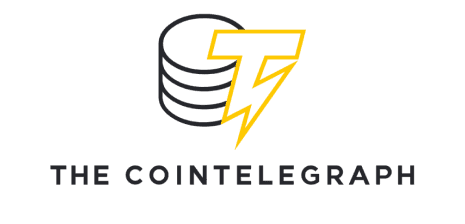
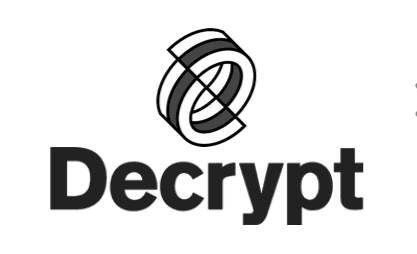
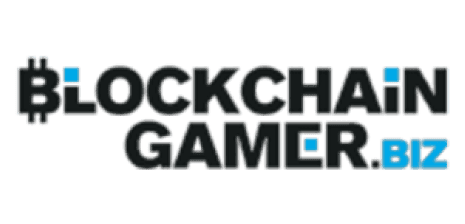
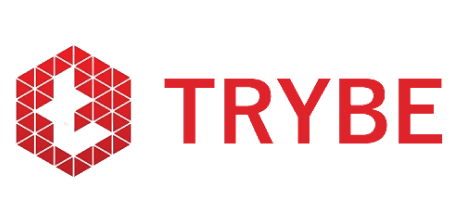

Follow us